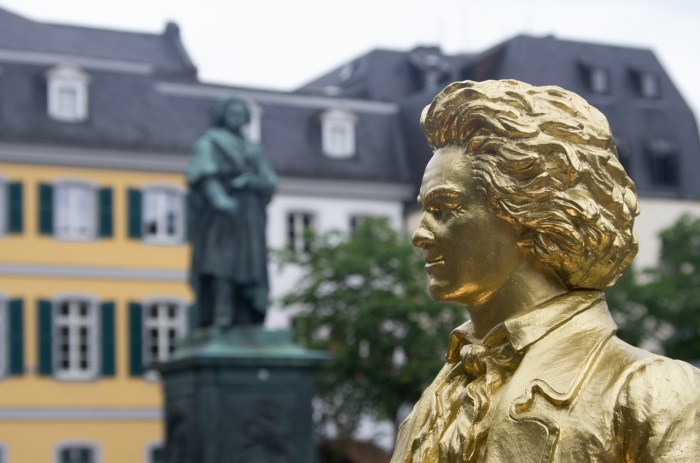Select all the statements about Beethoven’s childhood and youth. This topic delves into the formative years of Ludwig van Beethoven, a musical genius whose legacy continues to inspire and captivate audiences worldwide. From his humble beginnings to his rise as a renowned composer, Beethoven’s childhood and youth were marked by both triumphs and challenges that shaped his artistic journey.
Born into a family with musical aspirations, Beethoven’s early life was heavily influenced by his father’s desire to mold him into a child prodigy. Under the strict tutelage of his father and other teachers, Beethoven’s musical education began at an early age.
His exceptional talent and dedication soon became evident, leading to performances and compositions that showcased his burgeoning abilities.
Ludwig van Beethoven’s Birth and Family Background: Select All The Statements About Beethoven’s Childhood And Youth.

Ludwig van Beethoven was born on December 16, 1770, in Bonn, Germany. His father, Johann van Beethoven, was a court musician who aspired to make his son a musical prodigy. Beethoven’s early life was heavily influenced by his father’s ambitions, which led to intense musical training.
Beethoven’s Musical Education
Beethoven began studying music at a young age under his father’s guidance. He also received lessons from other teachers, including Tobias Friedrich Pfeiffer and Christian Gottlob Neefe. Neefe played a significant role in Beethoven’s musical development, recognizing his talent and encouraging him to pursue a career as a composer.
In 1792, Beethoven moved to Vienna to study with Joseph Haydn. Haydn, a renowned composer, initially underestimated Beethoven’s abilities but later came to appreciate his talent.
Beethoven’s Early Compositions and Performances, Select all the statements about beethoven’s childhood and youth.
Beethoven’s early compositions include piano sonatas, such as the “Pathetique” Sonata, and string quartets. These works demonstrated his exceptional musical abilities and established him as a rising star in the musical world.
Beethoven also gained recognition as a virtuoso pianist, performing his own compositions and improvising on the spot. His public performances were highly acclaimed and helped to spread his fame.
Beethoven’s Personal Life and Struggles
Beethoven’s personal life was marked by challenges and triumphs. He faced financial difficulties and experienced a series of failed relationships. Most significantly, Beethoven began to lose his hearing in the late 1790s, a condition that gradually worsened over time.
Despite his personal struggles, Beethoven continued to compose and produce some of his most renowned works, including the “Eroica” Symphony and the “Moonlight” Sonata. His music often reflected his own experiences, expressing both his triumphs and his suffering.
FAQ Resource
When was Beethoven born?
December 16, 1770
Who was Beethoven’s first music teacher?
His father, Johann van Beethoven
What was the name of Beethoven’s most famous piano sonata?
Moonlight Sonata


